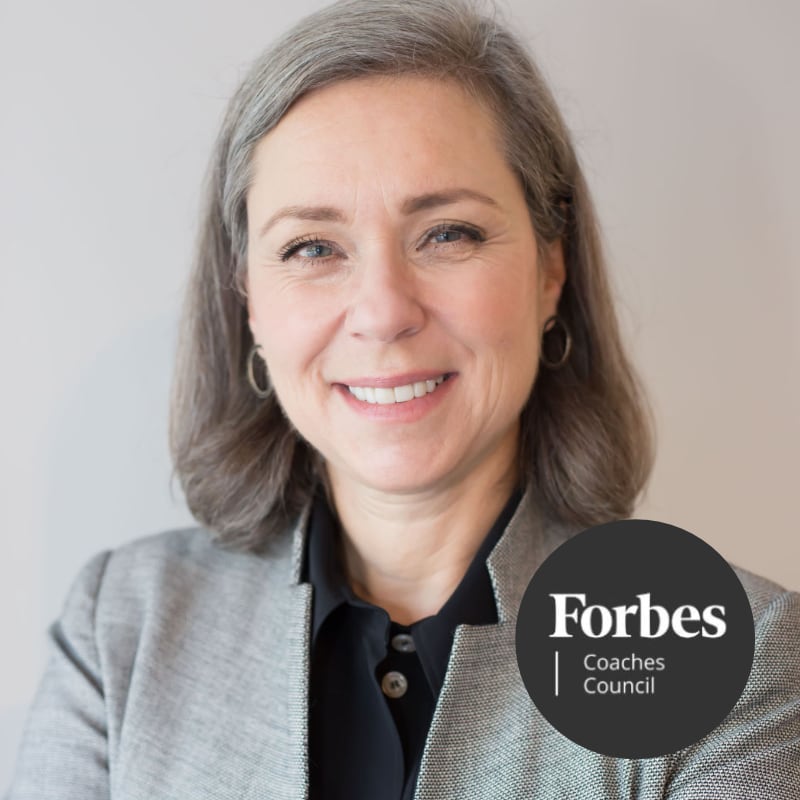Sales Has Changed Forever: How To Move Beyond Relationship-Building

Even before Covid-19 radically changed how people do business, the days when building relationships was a primary sales and business development strategy were waning. Looking back as an executive coach, I’m not sure relationship selling was ever very effective in the first place.
The goal of relationship selling is to build relationships with people you want to work with. But what you actually get when you build relationships is relationships – this doesn’t always lead to work. Just because someone likes you doesn’t mean they have a need for your professional skill set or know how best to use your skills. On the other hand, if you don’t have a relationship with someone, it’s probably going to be hard to sell them your services.
Relationships are an important component for sales and business development, but they’re not the only component. Well over a year into the pandemic, business growth is stronger than expected but sales require much more work. Deals are smaller and more competitive. People don’t have the luxury of meeting new clients in person and making sales during long golf games and sporting or social events. People must be more efficient, targeted and focused to be effective in sales.
Today, people in the sales function need more c-suite-level skills. As a coach, I’m focused on helping people succeed in sales by taking advantage of the virtual world and moving beyond relationship selling.
Do your homework.
Instead of taking clients out to fancy dinners, salespeople need to do their homework and show up to virtual meetings with a strong point of view. You need to show that you’ve strategically analyzed the client’s business and used your experience and expertise to develop a game plan that helps them stand out from their competitors.
Your pitch might begin with “I’m looking at your organization and I see that it’s not a very diverse leadership team, so I want to talk to you about how I can help you increase diversity.” Not only is this a more targeted approach; it’s also much quicker and more efficient for the client. Relationship-building takes a long time. Golf games take a long time. Doing your homework is something everyone can excel at and a more sustainable way to succeed at client relationships.
Focus on dialogue.
This is a wonderful shift because it opens sales up to a much bigger talent pool. Anybody can do their homework and develop a strategy. At this point, you have everything you need to start a dialogue, where you identify the client’s problems or opportunities and design solutions together around the skills and services you offer.
Anyone can accomplish this over Zoom. In the past, people almost always arranged to meet with clients in person. During the pandemic, people have shifted to in-person meetings when possible. I believe this approach will carry over, even when restrictions lift, because people have learned that they only need one or two in-person meetings with new clients. After that, virtual meetings are much more convenient and effective because they can be focused.
Shifting to virtual communication also increases the frequency with which you can have important conversations that aren’t wrapped up in the time, travel and expense associated with relationship-building. Focusing on dialogue means sales can better address their clients’ needs and clients can make the best buys for their company. And it is more cost effective and efficient for everyone involved.
Use untapped talents.
The sales force used to be filled with extroverts who enjoy and excel at relationship-building. The really good people were highly prepared and strategic but many salespeople were nice people who like to network. This is why salespeople had such varied and sometimes unpredictable results.
The future sales force will be filled with people who think strategically and have good research skills – abilities often possessed by introverts. And they will need courage and perseverance. The great news is that these skills – doing the research, prepping the meeting, managing the sales process, co-designing the solutions – can be learned.
Great salespeople are positive, optimistic, persistent and courageous. They’re not afraid to lose sales or relationships. They’re confident pitching big ideas to clients because they have done their homework. As a salesperson, this leads to a perfect intersection between what you’re good at and what your clients need. Sales will happen naturally and organically – and so will relationships.
Originally posted at Forbes.com.

